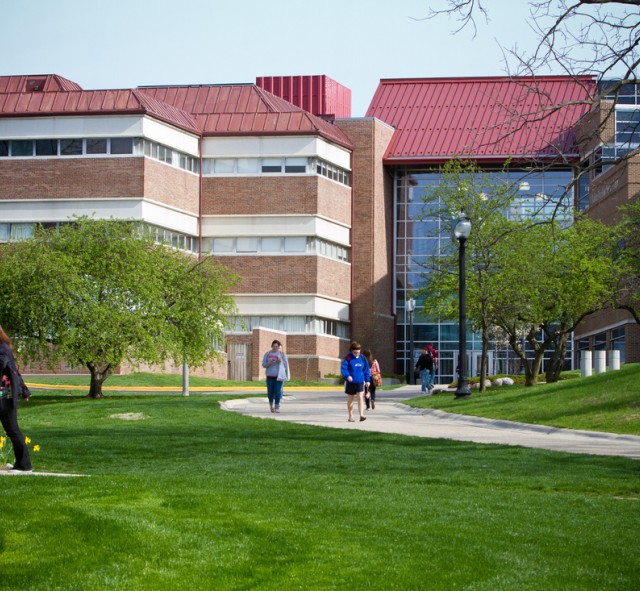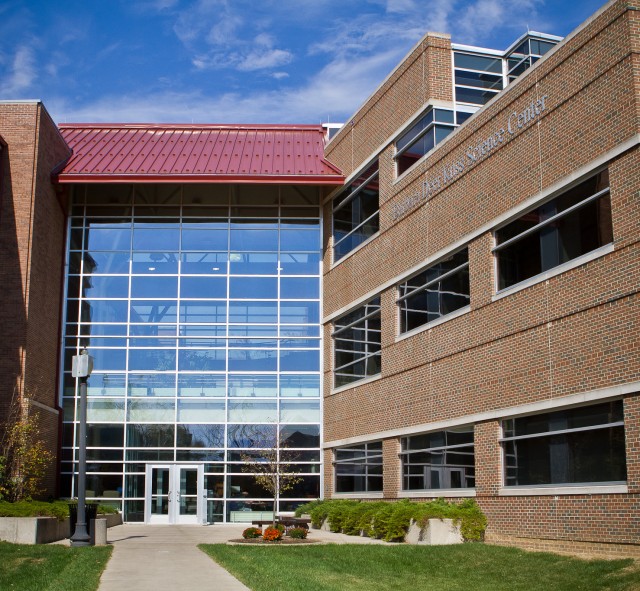Insistent on providing programs that address contemporary challenges and student interests, Wittenberg has established an innovative cybersecurity track in partnership with Springfield’s Advanced Technical Intelligence Center (ATIC). The track, offered through the university’s popular computer science program, allows students to take a deep dive into hacking techniques and malware, as well as explore various defense and intelligence careers, among other areas.
Within the computer science program, students can choose from two tracks: general computer science, designed for those moving on to graduate school or industry employment; and cybersecurity, which will include coursework at the ATIC to train students in defensive network security and analyst skills. Highly motivated students may be able to complete either program in three years.
In the cybersecurity track, students will also be sponsored for security clearance through ATIC, created as a training center in 2006 in Dayton, Ohio. ATIC is an independent 501(c)(3) not-for-profit organization established to aid in the technological development needs within the United States defense and intelligence agencies (DIA) and other related industries. It is part of the Center for Workforce Development at Wright State University.
“The department of math and computer science is extremely excited for the opportunity to partner with ATIC,” said Adam Parker, department chair and assistant professor of mathematics. “The access to technical resources and expertise will be very valuable for our students. Each time you see in the news that a company had personal information stolen means that there will be more demand for the graduates of this program. Computer science in general is a growth field, but we are especially excited for the job prospects from the cybersecurity track.”
ATIC partnered with the intelligence community, law enforcement, universities and the defense industry to provide training and education in technical intelligence, research and development and analyst skills. More than 500 ATIC graduates support 17 intelligence agencies and more than 20 industry partners across the United States.
“The department of math and computer science is extremely excited for the opportunity to partner with ATIC. The access to technical resources and expertise will be very valuable for our students. Each time you see in the news that a company had personal information stolen means that there will be more demand for the graduates of this program. Computer science in general is a growth field, but we are especially excited for the job prospects from the cybersecurity track.”
Adam Parker, Department Chair and Assistant Professor of Mathematics
Wittenberg has partnered with ATIC to send students to a training facility for a semester once prerequisites are met, typically during the junior or senior year. Students will be able to attend courses and training at the Springfield facility located at 4170 Allium Ct. in the Nextedge Applied Research Technology Park from 8:30 a.m. to 4:30 p.m. Monday through Friday with hourly breaks and an hour-long lunch period.
The in-class training is 10 weeks long with a five-week internship to follow. Students will learn by doing, discovering and exploring cybersecurity and data analysis in a hands-on, experiential learning environment.
“ATIC training is about analyst tradecraft, network defense and security monitoring. Students will learn about career opportunities in the intelligence industry or how to defend against network threats,” said John Hermes, an ATIC instructor. “Our courses prepare graduates to serve as entry-level analysts serving defense and intelligence agencies or cybersecurity defense organizations. ATIC courses also introduce analyst and intelligence disciplines. In cybersecurity training, students will learn basic offensive security and hacking techniques, network security monitoring and malware analysis. They will be able take apart malware (virus, worm, etc.) and see how they work – all in a safe environment.”
Hermes said students will also learn about virtual machines and networks in a secure cyber range and that their capstone research will be a presentation on selected malware. Students will choose a contemporary malware sample, detect and capture it, tear it apart and figure out how it works in order to learn how to prevent it.
“CADS students will build their own virtual machines, hack each other, attack vulnerable machines and dissect malware, while learning about all the working parts,” said Tim Shaw, director of ATIC and a former FBI agent. “We have a classified facility, and we are training all sorts of analysts. We then sponsor them for a security clearance. A security clearance is not promised because the government determines whether you receive clearance or not.”
The program can lead to important internships and job opportunities within the intelligence community, including “careers that you never knew existed. Courses are available during the fall, spring and summer semesters.
The ATIC staff is comprised of experienced professionals who are experts in their field and focus on training students to meet contemporary challenges facing our nation. Students are exposed to instructors from a variety of backgrounds including ethics specialists. Contractors also serve as instructors and teach different parts of the track, allowing for additional viewpoints and networking opportunities. Additionally, ATIC graduates are supported by APDC, a sibling organization that matches employers to employees, provides resume workshops, job fairs and networking connections as part of Wright State's Center for Workforce Development.
Classroom photo courtesy of ATIC.







